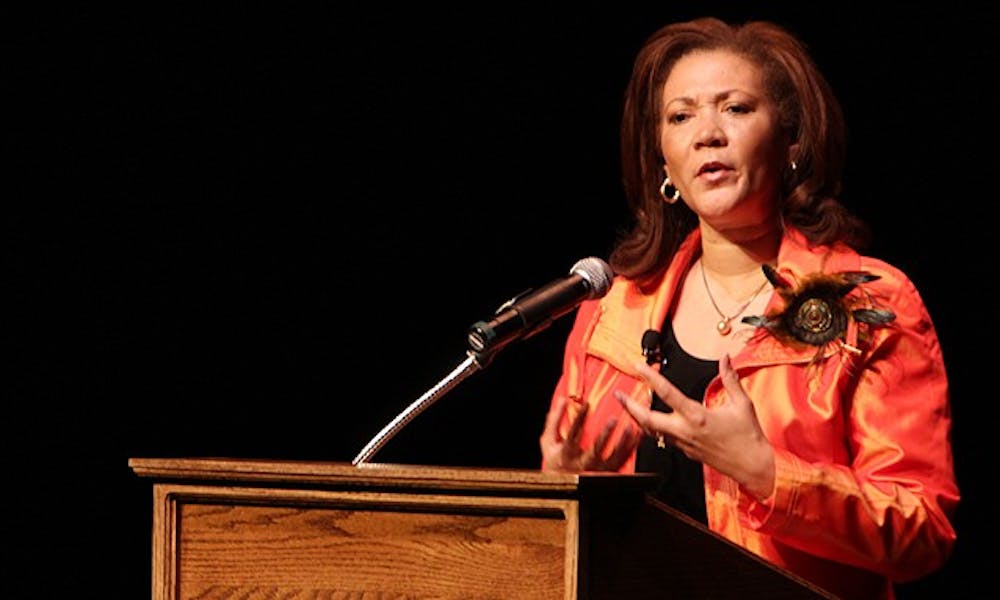A National Public Radio host is pulling the race card—and she is doing it to illuminate the nature of race relations past and present.
Michele Norris, co-host of NPR’s longest-running news program “All Things Considered,” spoke at Reynolds Theater Wednesday as part of the Race Card Project—a nationwide initiative accompanying her current book tour that asks fans and audiences alike to submit their thoughts on race in six words or less.
“‘Underneath, we all taste like chickens,’” Norris read, noting that of out of thousands of submissions, this one-liner stands out as one of her favorites to date.
In her remarks, Norris also discussed her recent book, “The Grace of Silence: A Memoir.” Norris’ lecture, sponsored by the Baldwin Scholars Program, focused on stories of Norris’ family members before the civil rights movement and what the radio host terms as the “hidden conversations on race.”
“[I want to convey] the importance of family history and finding out your own history, of your family and community,” Norris said in an interview. “There’s a story that’s in the history books, with a capital H, and then there’s a personal history.”
Norris said she dived into her own family history after her uncle accidentally referred to a family secret, which revealed that her grandmother used to dress as Aunt Jemima and travel across America performing marketing demonstrations for Quaker Oats. Norris learned that her grandmother took the job otherwise considered humiliating but used it to influence American opinions on black women, one small community at a time, she said. Her grandmother held herself with dignity and poise to leave positive impressions in the communities she passed through.
“She used her income to lift her family up, but she used her job to lift her people up,” Norris said.
Another chance remark revealed an even more shocking revelation.
Norris’ father was shot by a police officer Feb. 27, 1947, in Birmingham, Ala. Her father—a World War II veteran—was attempting to register to vote, which by law required an encyclopedic knowledge of the Constitution. The shot only grazed his leg, but her father kept it secret from Norris and her family all his life. This revelation explained several quirks Norris said she had noticed in her father while growing up—he had always seemed to walk with a slight limp, and carried a pocket Constitution on his person throughout his entire life.
Although Norris said she experienced strong opposition from her family in researching these stories, persistence was well worth it.
“If you don’t claim those stories, you lose them,” she said.
This research inspired the Race Card Project, which works to add to the global conversation on race and has seen a large response, she said.
Many audience members said they left the event inspired and invigorated.
“It is important for the current generation, who is forgetting what people have gone through, to rehear these stories and almost re-experience the atrocities that happened in terms of race and start caring again,” said sophomore Rebekah Johnston, a Baldwin Scholar. “It seems to me like there’s a pause in racial progress, and highlighting these struggles will hopefully push things forward.”
Durham resident Erin Swanson said she was fascinated by the Norris family’s experiences shielding her from their history in order to promote her upward mobility.
Norris added that she is hopeful that her stories will spur others to start conversations of their own and emphasized the importance of the college environment in these discussions.
“Sometimes activism doesn’t have a fist in the air, doesn’t occupy a building or parking lot—sometimes activism is quiet, but just as effective,” Norris said.
Get The Chronicle straight to your inbox
Signup for our weekly newsletter. Cancel at any time.

